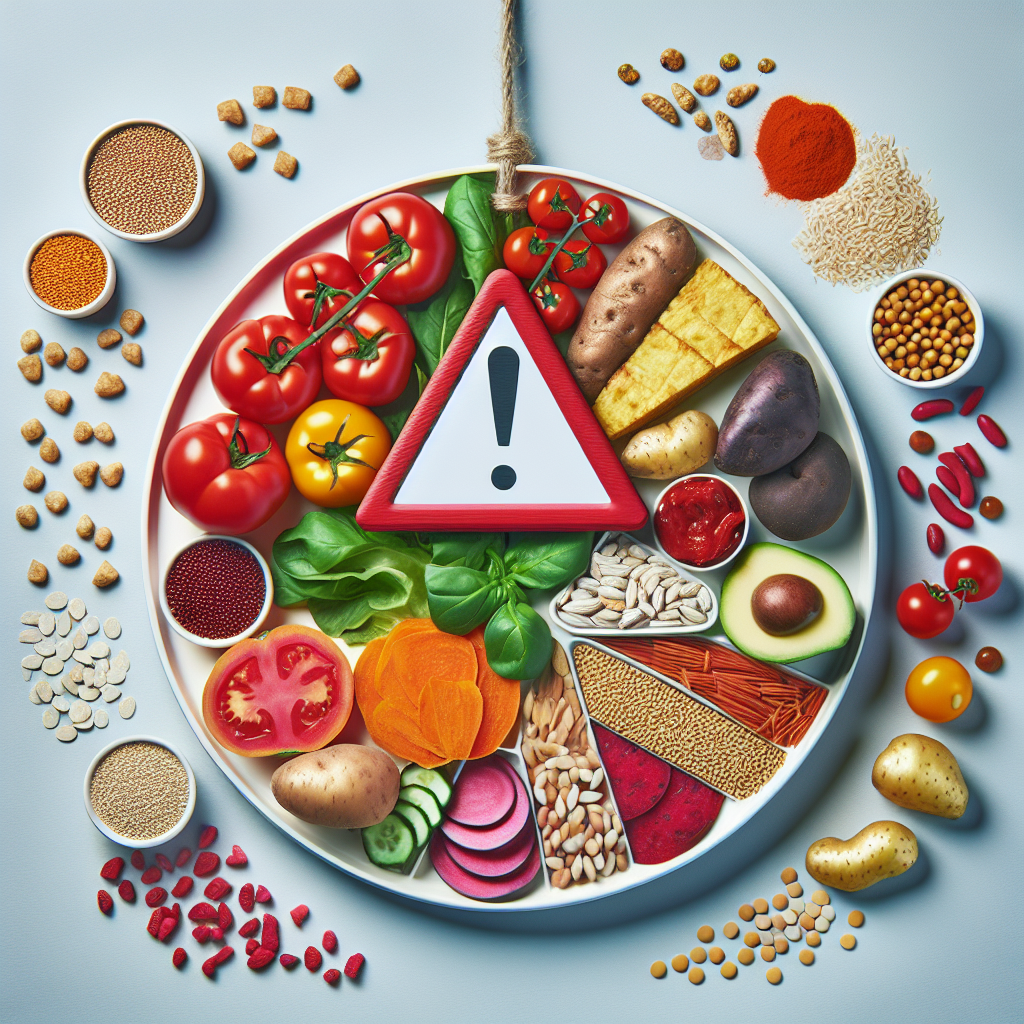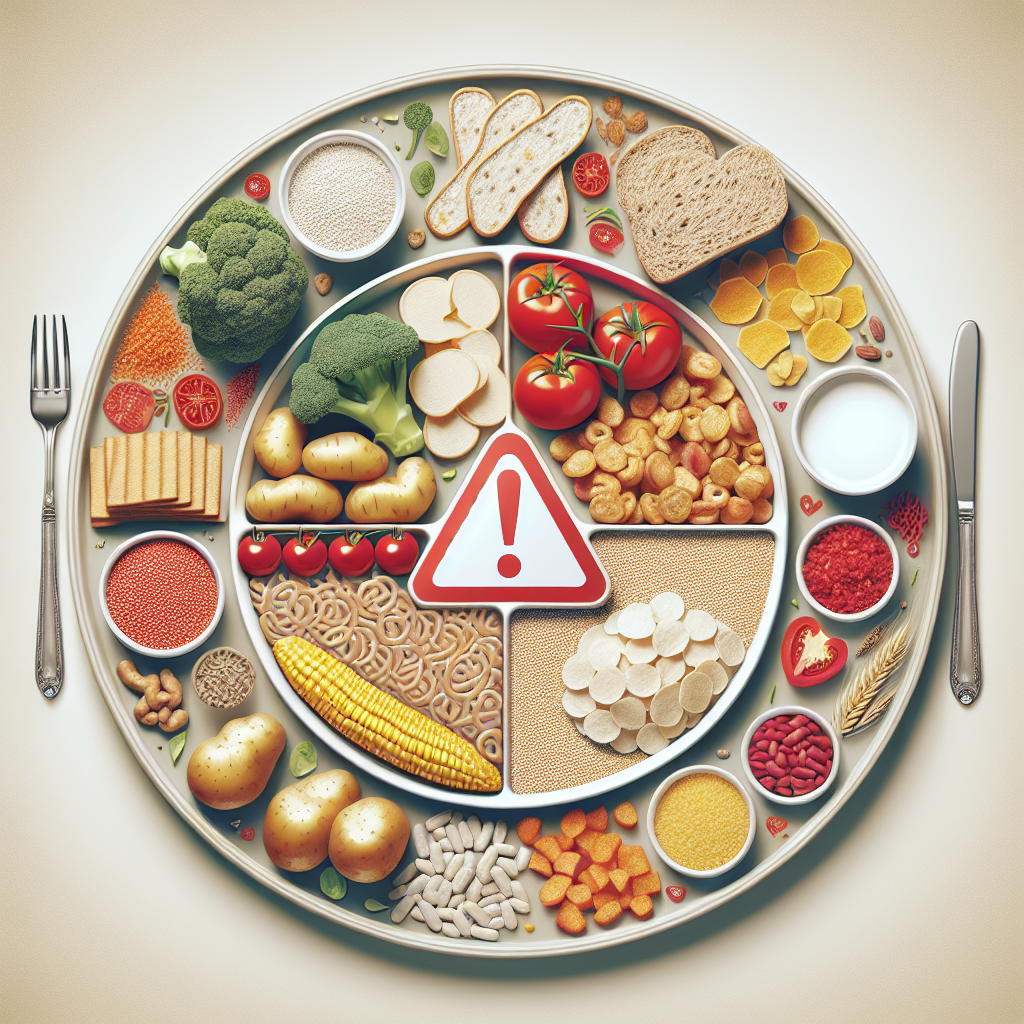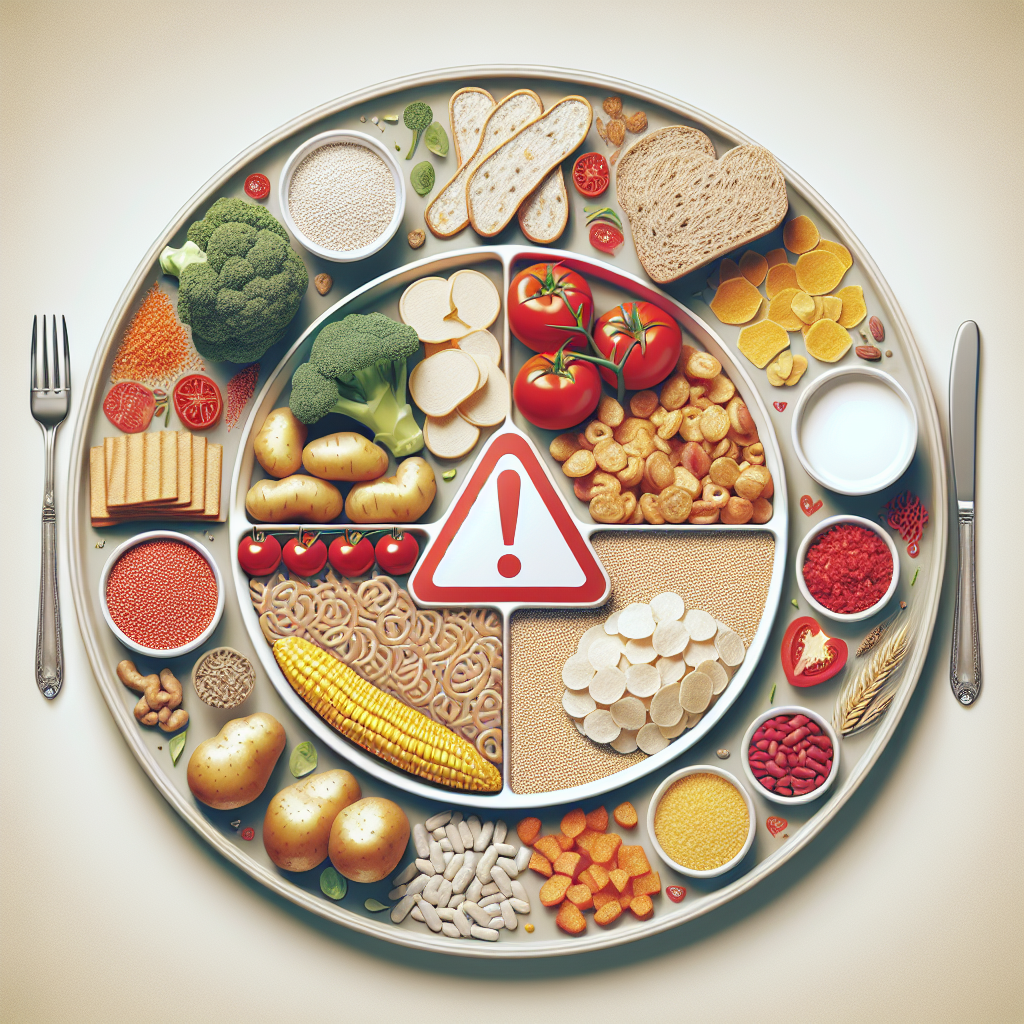You can almost smell the morning coffee as you flip through the pages of this compelling article about the possible perils of a lectin-free diet. Just when you thought this diet was the holy grail to your health problems, this piece prompts you to pause and consider its potential downsides. So, you might want to hold off on completely eliminating that group of food substances, as this shared knowledge could shed light on how it may unexpectedly impact your wellbeing! No matter whether you’re a wellness buff or just a curious cat, this insightful piece, brimming with expert opinions, will get you hooked from word one.
1. Nutritional deficiencies
Embarking on a lectin-free diet often results in various nutritional deficiencies. Without careful planning, you could be depriving your body of essential nutrients it needs to function optimally.
1.1 Lack of fiber
One such deficiency is a lack of fiber. Fiber is a type of carbohydrate found in a variety of foods, many which contain lectins. Foods such as whole grains, legumes, and certain fruits and vegetables all contain high levels of fiber but also contain lectins. When you exclude these from your diet, the fiber intake can be significantly reduced. Low fiber intake can lead to a range of health issues, including constipation and a higher risk of heart disease.
1.2 Reduced nutrient intake
A lectin-free diet also contributes to a reduced nutrient intake. Many of the foods you’ll need to avoid on a lectin-free diet are packed with essential nutrients like vitamins, minerals, and antioxidants. With these out of the picture, you might not get the necessary amount of these nutrients your body needs unless you supplement it somehow.
2. Limited food choices
Adhering to a lectin-free diet can significantly limit your food choices. This can make it more challenging to enjoy a varied and balanced diet.
2.1 Elimination of healthy foods
An unfortunate downside of a lectin-free diet is the removal of various healthy foods from your meal plan. For instance, you’ll have to avoid legumes such as chickpeas and lentils, fruits like tomatoes and cucumbers, and whole grains like wheat and barley, all of which are usually associated with a healthy diet.
2.2 Difficulty in maintaining a balanced diet
With such a variety of foods no longer on your plate, it can become much harder to maintain a balanced diet. Balanced diets are essential for meeting all your nutritional needs, and a severely restricted food list can make hitting those nutrient targets much more challenging.

3. Potential for inadequate protein intake
A lectin-free diet could also lead to inadequate protein intake. This is particularly true if you follow a vegan or vegetarian lifestyle.
3.1 Reduction in plant-based protein sources
Many plant-based protein sources, such as beans, lentils, and whole grains, contain lectins. When these are eliminated from your diet, it can be difficult to meet your protein needs, especially if you do not consume animal products.
3.2 Need for alternative protein sources
The lack of traditional protein sources may have you scrambling for alternatives. However, finding suitable, lectin-free options can prove challenging, and could risk leaving you with insufficient protein in your diet. This could eventually lead to muscle loss and a weakened immune system.
4. Impact on gut health
A lectin-free diet can have a substantial impact on your gut health, too.
4.1 Disruption of gut microbiome
Adhering to a lectin-free diet could disrupt your gut microbiome. Foods rich in fiber, such as fruits and vegetables, feed the beneficial bacteria in your intestines. With a reduced fiber intake, these bacteria may not receive the nutrients they need to thrive which impacts your overall gut health.
4.2 Decreased diversity of gut bacteria
This diet can also result in a decreased diversity of gut bacteria. A diverse gut microbiome is linked to better overall health, while lower diversity can be associated with various diseases and conditions.

5. Lack of scientific evidence
The lack of scientific evidence concerning the benefits and effectiveness of a lectin-free diet is a significant concern.
5.1 Limited research on lectin-free diets
Research on lectin-free diets is limited, making it difficult to substantiate many of the health claims associated with this way of eating. Without extensive research, understanding the long-term effects of the diet on your overall health becomes an uphill task.
5.2 Lack of studies supporting health claims
Many of the health claims surrounding a lectin-free diet, such as weight loss and reduced inflammation, lack robust scientific evidence. Consequently, these diets may not provide the health benefits that are often promoted.
6. Potential for nutrient imbalances
Following a lectin-free diet also carries the potential risk of resulting in nutrient imbalances.
6.1 Overemphasis on certain nutrients
As you remove certain foods from your diet and replace them with others, there’s a possibility of overemphasizing certain nutrients while neglecting others. This imbalance could lead to deficiencies and health issues over time.
6.2 Difficulty in obtaining adequate micronutrients
Equally, you may struggle to obtain adequate micronutrients, such as vitamins and minerals, with a diet free of lectins. Such a shortage could compromise your immune function and overall health.
7. Emotional and social implications
The adoption of a lectin-free diet carries significant emotional and social implications that often go unnoticed.
7.1 Psychological impact of restrictive dieting
Following a severely restrictive diet can put a strain on your mental wellbeing. It can result in feelings of deprivation, obsession with food, and an unhealthy relationship with eating.
7.2 Challenges in social situations and dining out
A lectin-free diet can also make social situations involving food more challenging. Dining out or attending parties may require considerable prior planning and negotiation with hosts or restaurant staff, which can produce stress and anxiety.
8. Lack of long-term sustainability
Another downside to consider is the lack of long-term sustainability of a lectin-free diet.
8.1 Difficulty in maintaining a lectin-free diet
With a small and often expensive selection of safe foods on a lectin-free diet, maintaining it can be quite a challenge. It requires a high level of commitment, planning, and culinary creativity to avoid meal monotony and nutritional deficiencies.
8.2 Potential for reverting back to previous eating habits
If you find it hard to adhere to a lectin-free diet, there’s a high likelihood you might fall back into your old eating habits. This could see you bounce back to your previous weight or health issues, especially if your switch was motivated by weight loss or health concerns.
9. Potentially unnecessary restrictions
You’ll want to consider the fact that a lectin-free diet may impose unnecessary restrictions on your eating habits.
9.1 Lectins may not be problematic for everyone
For a start, lectins may not be problematic for everyone. While they can cause issues in large amounts or for those with specific intolerances, most individuals can consume lectin-containing foods without issues.
9.2 Individual differences in lectin tolerance
Moreover, lectin tolerance can vary greatly from person to person. So, someone else’s experience on a lectin-free diet may not mirror your own. You may not encounter the same improvements in health or wellbeing, owing to your individual tolerances and sensitivities.
10. Health risks for certain populations
Lastly, there are certain populations for whom a lectin-free diet poses additional health risks.
10.1 Increased risk for nutrient deficiencies in children
Children on a lectin-free diet are at an increased risk for nutrient deficiencies. This is due to their high nutrient needs for growth and development, which may not be met with the limited food options of a lectin-free diet.
10.2 Concerns for pregnant and breastfeeding women
Similarly, pregnant and breastfeeding women have higher nutrient needs too. With a restricted food list, these needs may not be met, potentially risking the health of both the mother and child.
In conclusion, while a lectin-free diet might offer some potential benefits, it’s essential to weigh these against the potential drawbacks. Always consult a healthcare or nutrition professional before starting any new diet, especially one as restrictive as a lectin-free diet.
